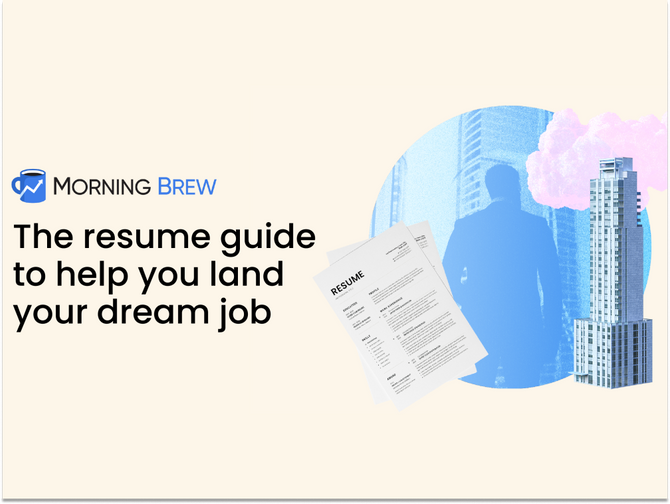Joe Raedle/Getty Images
US job postings are declining overall, but the drop in demand for HR employment has been particularly precipitous.
Job postings overall were down 17% from the previous year as of June 29, according to Indeed’s job postings index, which measures the average number of seasonally adjusted job postings on a given day, using a seven-day trailing average. By contrast, job openings for HR roles had declined by 45% year over year. While job openings overall remain 27% above their pre-pandemic level, HR jobs are only about 9% above their February 2020 baseline.
The decline in available HR jobs is in part a knock-on effect of a broader pullback in hiring, according to two economists who spoke with HR Brew. But it may also be tied to technological advancements in the industry that have allowed companies to streamline their HR processes, Julia Pollak, chief economist with ZipRecruiter, said.
Less hiring overall = fewer HR jobs. Nick Bunker, Indeed’s director of North American economic research, said in a June 22 press call the decline in HR job openings may be “a consequence of a general pullback in hiring demand, in that you're not going to want to hire folks who either are recruiters or they’re working…if you're not adding more people to your headcount.”
Technology complicates long-term outlook. ZipRecruiter’s Pollak offered a somewhat less rosy hypothesis that HR jobs are on the decline: Companies simply don’t need as many of these workers, thanks to advancements in technology like artificial intelligence and automation.
Keep reading here.—CV
|
|
Ready to take your HR career to new heights? It all starts with a standout resume. But crafting one that overcomes the ATS and captures recruiters’ attention can be overwhelming. That’s why we created the ultimate resume guide: to help you stand out in today’s competitive job market.
Through expert tips and real-world examples, we’ll help you revamp your resume to impress even the toughest hiring managers. Download our guide today—your dream job is waiting!
|
|
Looney Tunes via Giphy
Workers care more and more about work-life balance. But a new TikTok-fueled trend is encouraging women to take a step back from hustling at work and focus on jobs that don’t deplete their energy.
The latest. The “lazy girl” jobs trend has overtaken quiet quitting and bare minimum Mondays as the latest anti-hustle trend, and it has been promoted as career advice for women who are after jobs that pay a decent salary, yet don’t require a lot of hard work. Gabrielle Judge, the creator of the original lazy girl jobs TikTok post—which now has over 330,000 likes—describes such jobs as those that pay the bills but aren’t a lot of work.
Good idea? “While it’s encouraging to see the work ethic—and the dominant sense that work is valuable simply for work’s sake alone—being challenged, the individual ‘opt-out’ can only get us so far,” Jack Kellam, an editor at think tank Autonomy, told Dazed. He argued that it’s just another way of pushing back against the status quo and isn’t necessarily radical. After all, many “lazy girl jobs” are similar to “bullshit jobs,” a term anthropologist David Graeber came up with in 2018 to describe jobs without meaning, as Glamour noted.
But some say those who want lazy girl jobs are more likely looking for flexibility and better work-life balance than the rise-and-grind that’s motivated prior generations.
Keep reading here.—KP
|
|
Francis Scialabba
From India to England, remote work appears to be the only thing more in demand than Barbie merch this summer. That’s according to new data from Flexa, a platform that connects job candidates with employers offering flexible work arrangements.
Where in the world? Some 88% of global workers want a work-from-anywhere policy, a 10% increase between April and June, according to Flexa. Additionally, 59% prefer a remote role, a 13% increase in demand during the same time period—a shift, the report notes, that aligns with the onset of summer.
Employees in the UK work from home the most in Europe, according to a July report from the IFO Center for Macroeconomics and Surveys that looked at remote work in 34 countries. They work remotely an average of 1.5 days a week, slightly more than the average of 1 days a week logged by workers in Finland, Germany, and the Netherlands. Alternatively, employees in Greece are remote the least in Europe, just 0.5 days a week.
Workers across the globe are in the office more than they want to be, the survey found, with those in English-speaking countries, as well as those in Latin and South America, wanting to work from home at least two days a week.
“Even in the aftermath of the pandemic, the majority of workers highly value the opportunity to work from home for a portion of their workweek,” according to the report.
Keep reading here.—KP
|
|
|
Want retention? Pay attention. Literally—pay meaningful attention to your hires, new and old. Start by building a quality onboarding experience that embeds appreciation into the process. Employee recognition solutions like Culture Cloud by O.C. Tanner make it easy to facilitate thoughtful moments from day 1. See how it makes a difference.
|
|
Francis Scialabba
Today’s top HR reads.
Stat: 36% of Black workers feel comfortable discussing their mental health with coworkers, compared to 43% of white workers. (the Hartford and the National Alliance on Mental Illness)
Quote: “AI could create a scenario that reduces the scarcity of high-level expertise. It would open the door for non-traditional candidates, particularly those without a four-year degree.”—David Autor, economics professor at MIT, on how AI could impact the hiring process (BBC)
Read: President Biden wants employers to offer health insurance to employees who are losing their Medicaid benefits. (CNBC)
Lonely at work? Sit down with HR leaders and experts from Google and top Fortune 500 companies to help you tackle loneliness, boost productivity, and strengthen belonging in your workplace.*
*This is sponsored advertising content.
|
|
Brought to you by The Webby Awards, The Anthem Awards honors the purpose and mission-driven work of people, companies, and organizations worldwide.
Join winners such as REI, The Daily Show, R/GA, Sesame Workshop, Havas, The Problem with Jon Stewart, The New York Times 1619 Project, Oprah Winfrey Network, and Gloria Steinem in changing what we as a society deem worthy of an award.
Enter by the Early Entry Deadline on July 28.
|
|
|








